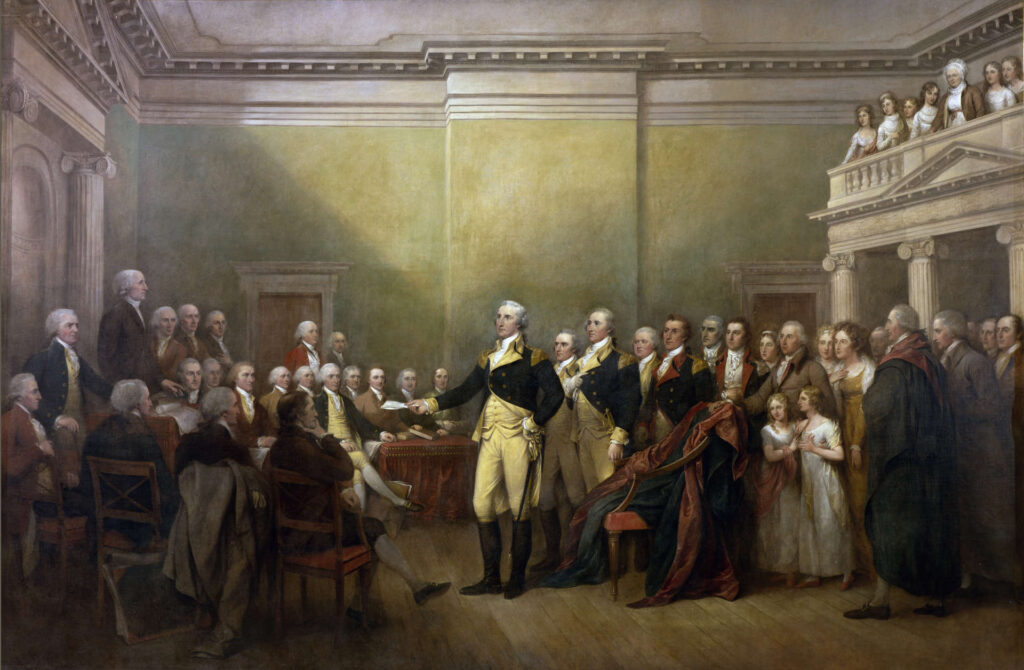The year was 1783.
The Revolutionary War was finally over. The American Continental Army, led to victory by General George Washington, was quickly growing restless and resentful over the lack of pay and support from a financially strapped American government.
Talk spread of the Army marching on Congress. Many of Washington’s own top officers were eager to crown their general King, and absolute ruler of the newly liberated United States of America.
Despite his own soldiers’ undying loyalty, yet misled ideas (for in those days, most people knew of little else), George Washington had NO such ambition. Indeed, no army under his command would ever be used against a civilian government. To prove his point, on December 23, 1783 (five years before he would become our first president), George Washington publicly bowed before Congress, and presented his resignation from military service.
More than crossing the Delaware during the War, and even more than ultimately serving as our first president, this single act, although not as well known, is regarded by many historians as Washington’s most defining leadership moment, and most significant to freedom and democracy.
Do you see the irony here? One of George Washington's most defining moments as a leader was walking away from power.
Indeed, what would our country be like today (present issues notwithstanding) had George Washington not been a man of character and strength?
What might our world be like today had Washington used the undying loyalty of an entire army to his own advantage?
Quite honestly, I have no idea. But I do know one thing: the “independence” our nation celebrates every July 4 would be far less significant. Had Washington not acted as he did on that day in December, we would have traded the rule of one dictator for that of another.
Truly, how many men, when faced with the opportunity to grasp such enormous power, would simply walk away from it? And yet ironically, that is precisely why Washington was chosen to serve as our nation’s first president when the United States Constitution was ratified and put in place five years later. And when his nation called, Washington–albeit reluctantly–answered.
And perhaps that is how true leaders should lead–not as ambitious kings but as reluctant servants. I suspect that part of the reason Washington accepted the job was because (beyond it being only temporary) it was the opportunity to set an example for others to follow. One does not accept roles of leadership for personal power or enrichment; it is to serve others in a nation, an organization, a family.
But why the reluctance? I suspect that it comes from humility, and the realization that no one is beyond corruptibility by temporal power...not even George Washington.
Each year, we celebrate our independence with parades, picnics and fireworks. As we do so, let’s give thanks to God for the true servant leaders like Washington and countless others who have continued to make it possible. Please have a blessed and happy Fourth of July.
Note: an older version of this article was previously published on Market Leadership Journal.
Photo: General George Washington Resigning his Commission by John Trumbull (public domain)



